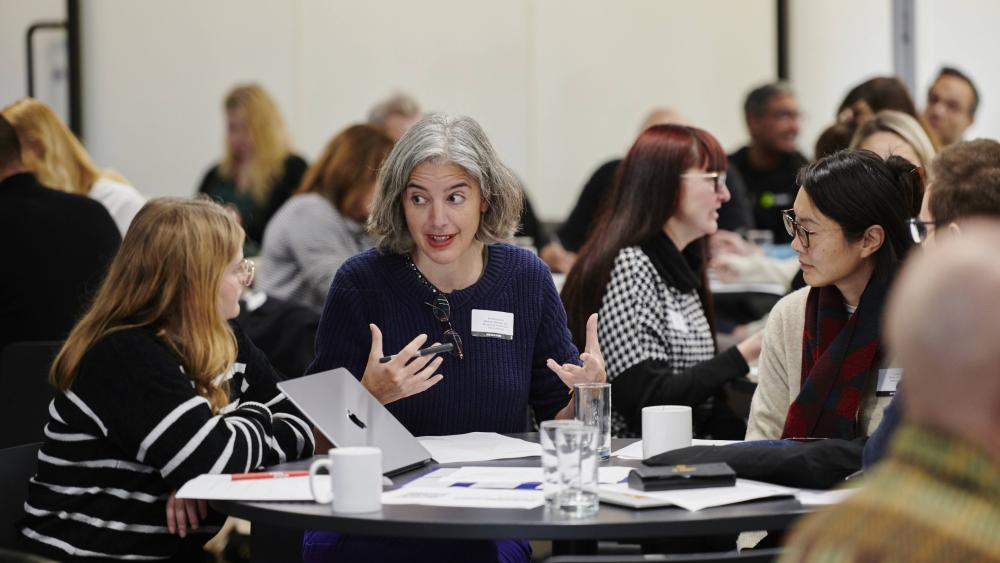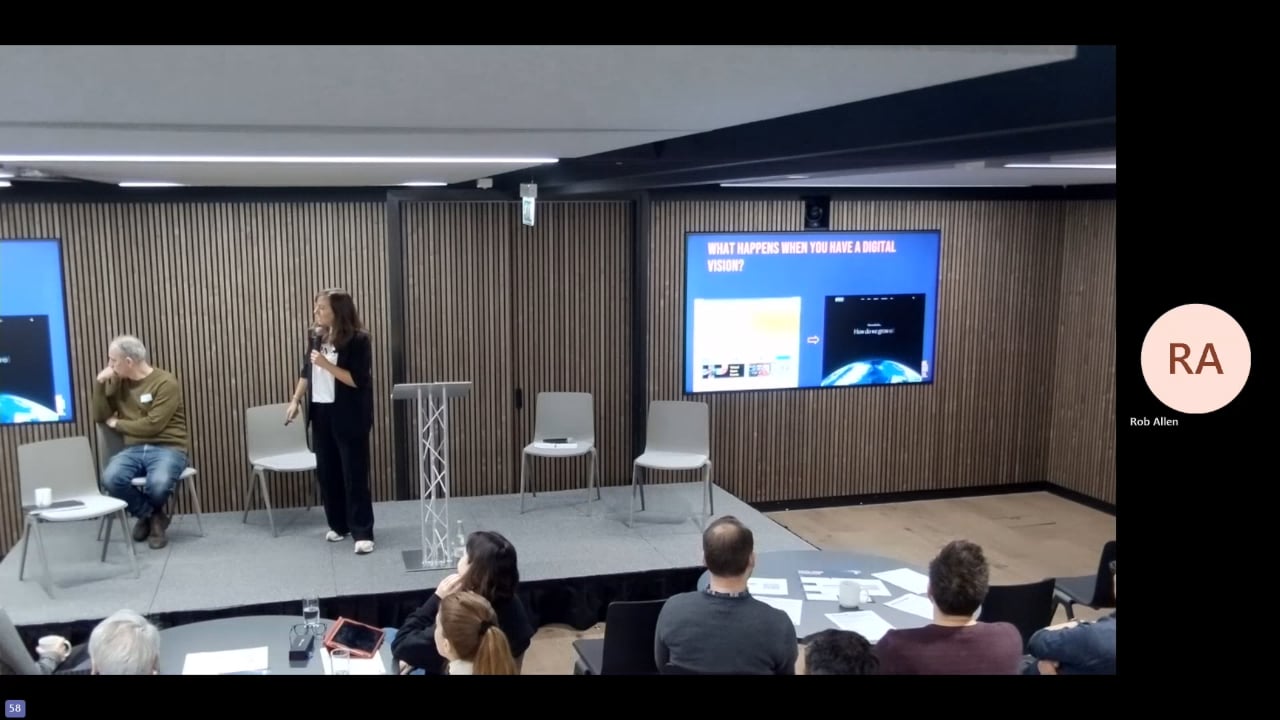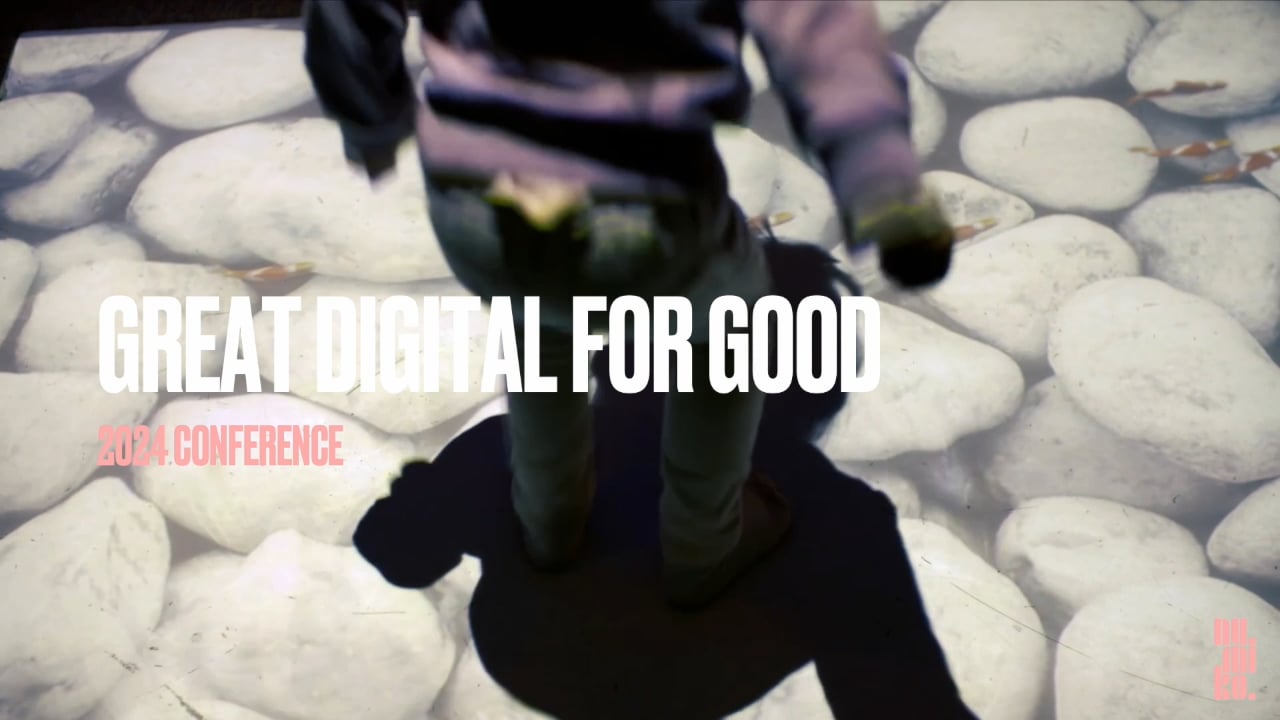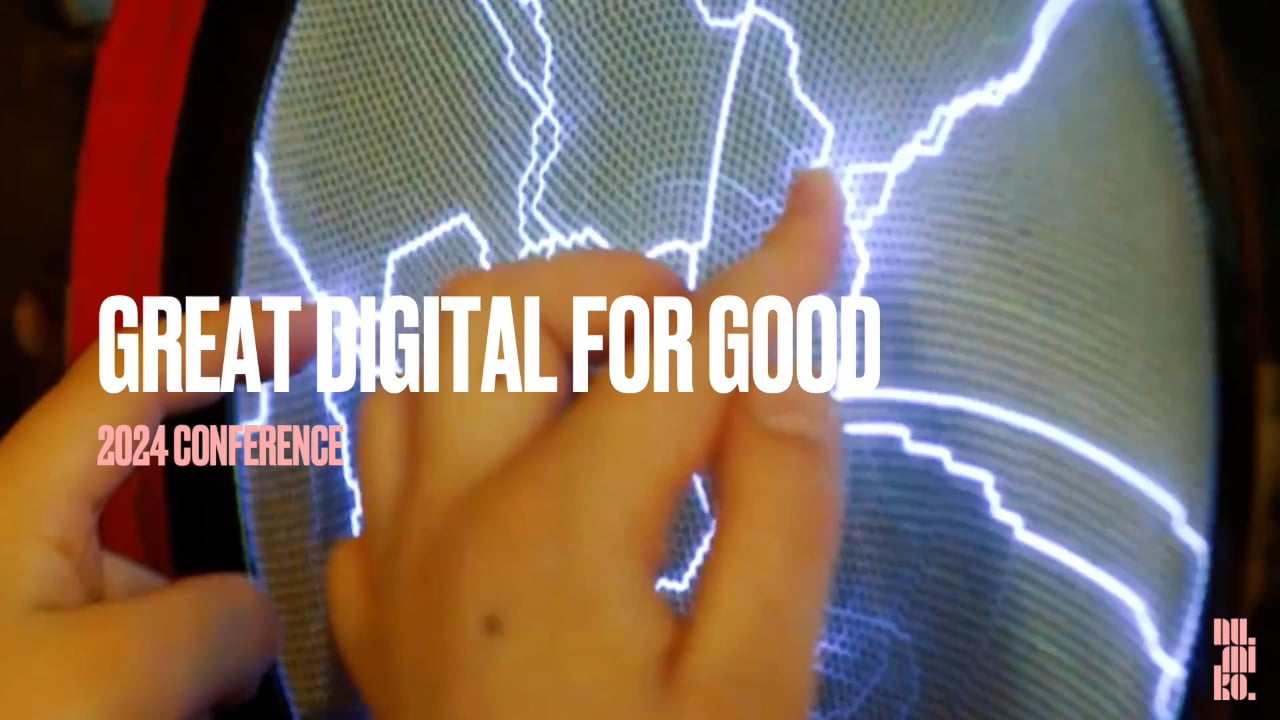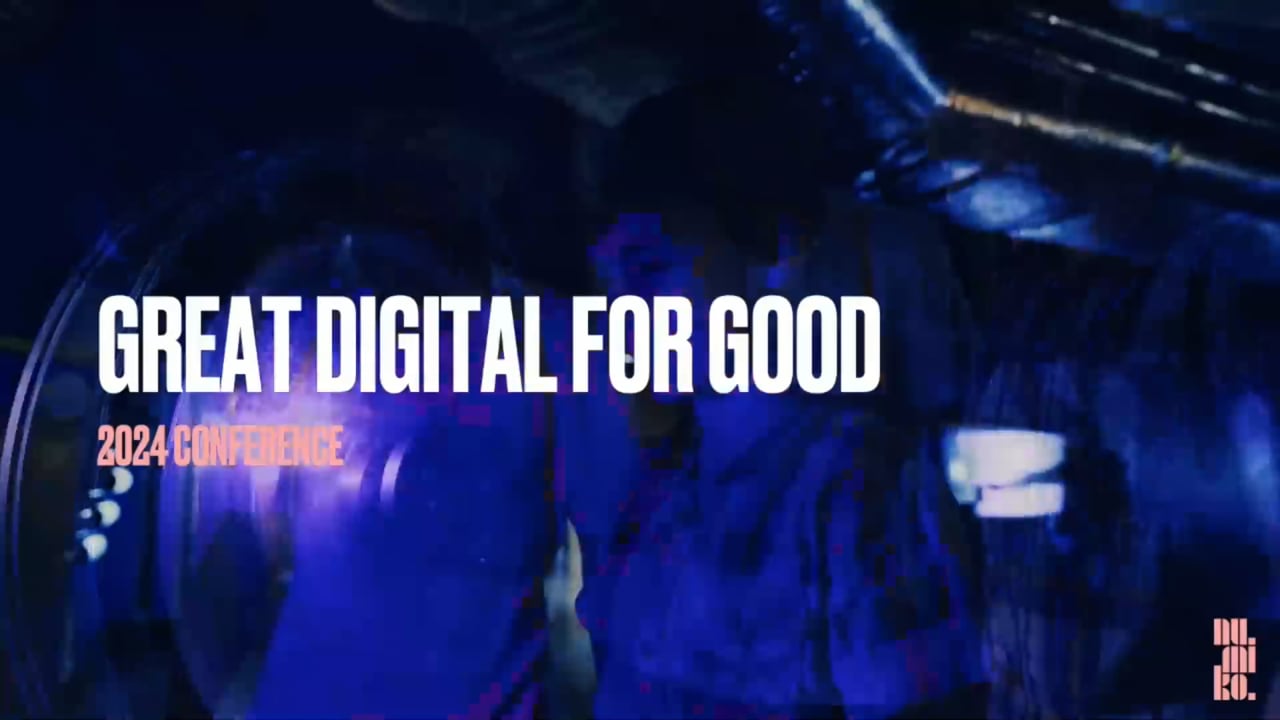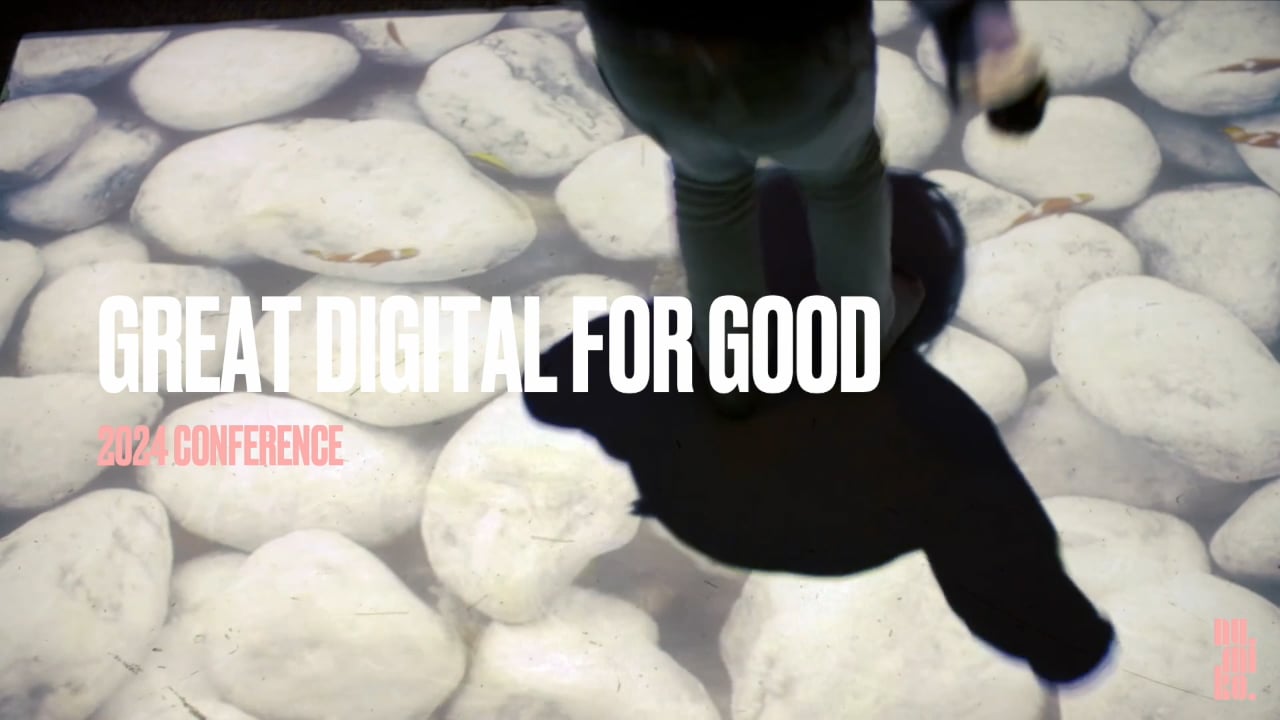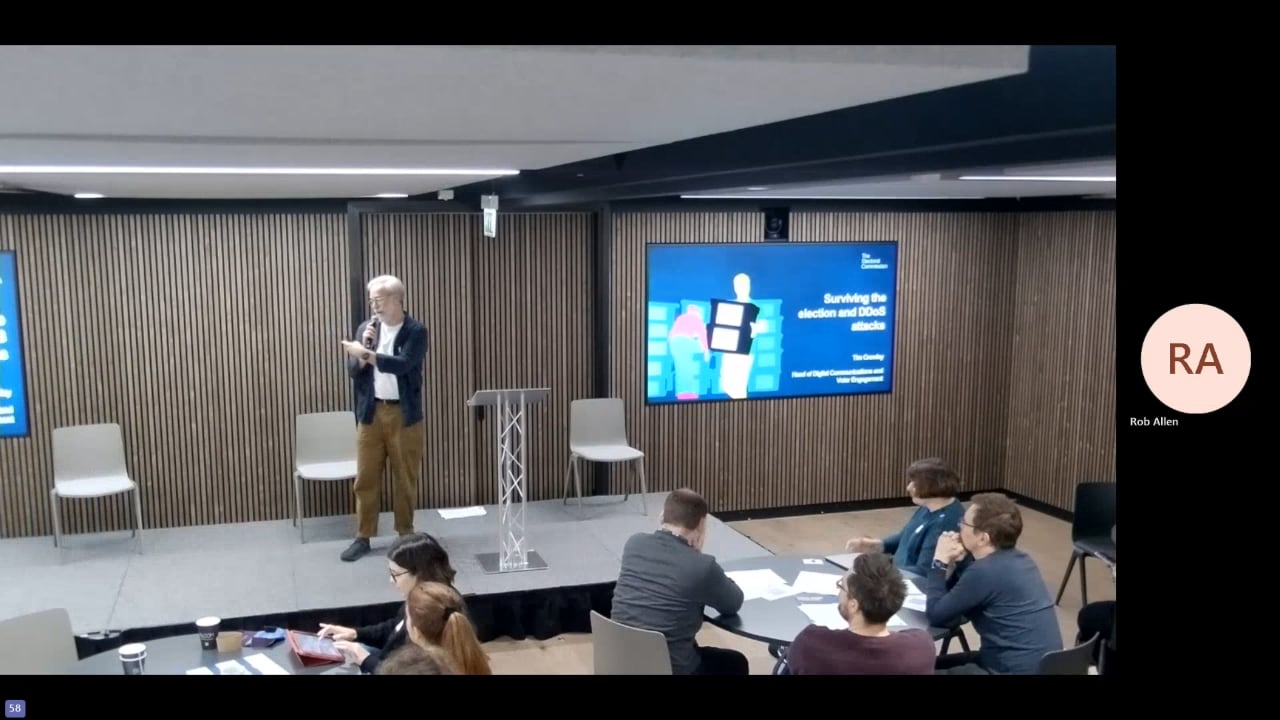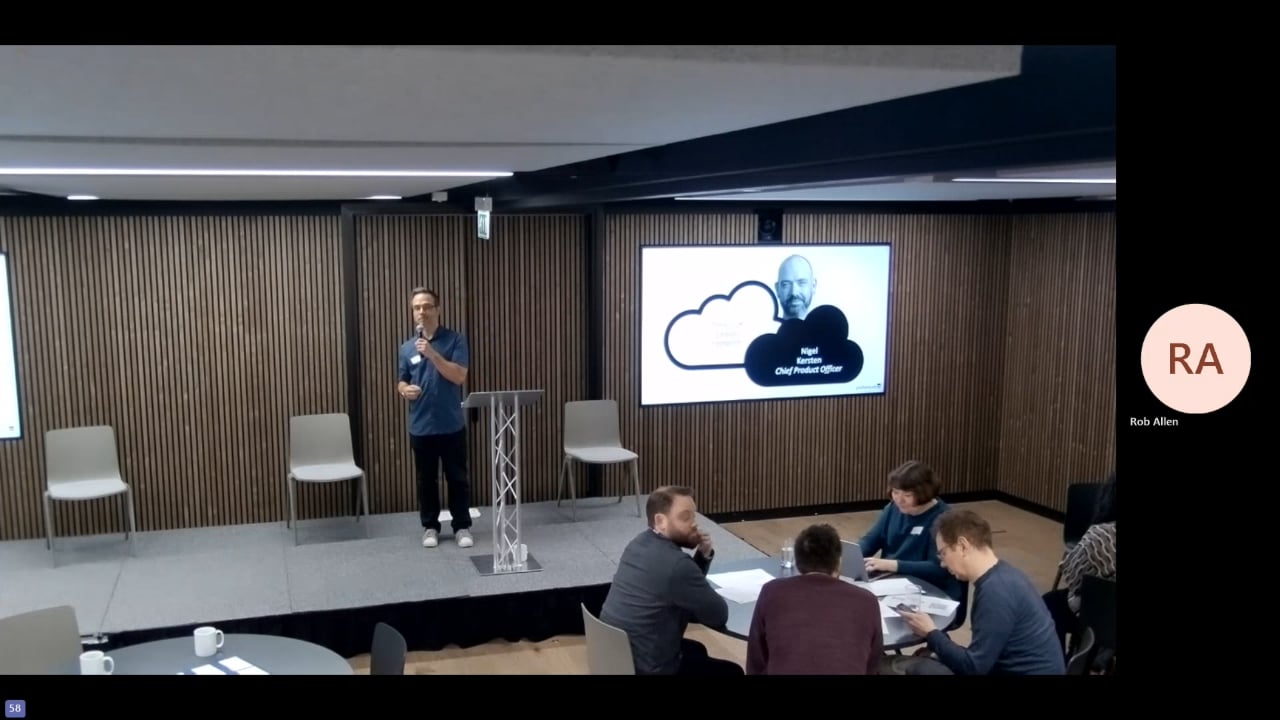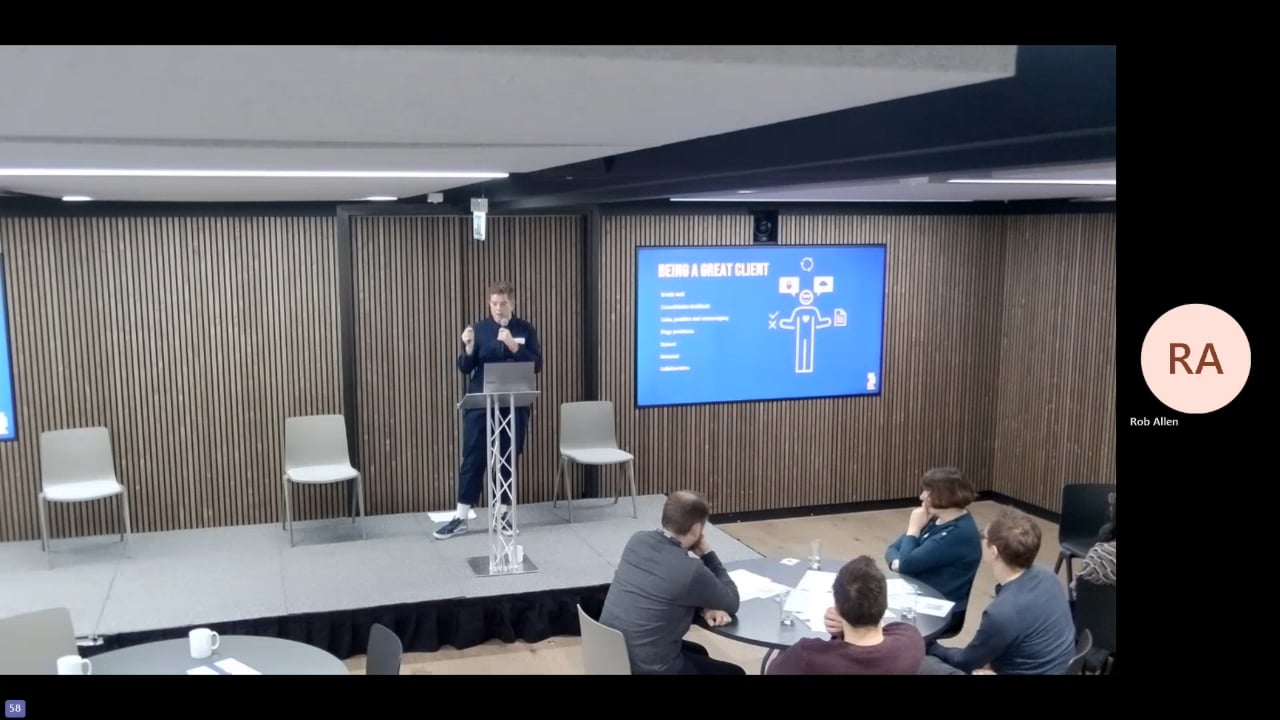A conference built around a single powerful idea—to bring together digital teams from the UK's leading purpose-driven organisations to learn from one another.
Numiko’s first Great Digital for Good Conference, held on November 15th in London, brought together an incredible group of purpose-driven digital professionals.
We hosted insightful, practical talks and hands-on workshops throughout the day, so that delegates could not only hear from people who have tackled the same challenges as them, but also work through them with practical, proven frameworks that Numiko have developed over the last 20+ years of working with purpose-driven organisations.
When we were planning the conference, we understood that the most valuable conversations would often occur between delegates facing similar challenges. This sense of community was something we wanted to encourage during our planning of the day, as well as in our ongoing support for the community in the future.
We’ve summarised each talk to give you a flavour of the day. If you want to explore a talk in more detail you can watch the recording.
Establishing a Digital Vision
Marie Kitney (Numiko) and John Stack (National Gallery) kicked off the workshops with a session on how a clear digital vision can act as a North Star for organisations. They emphasised the importance of aligning teams around shared goals and using the vision as a reference point for making decisions and measuring success.
It sounds deceptively simple, but a single clear vision for digital with buy-in from the highest level can make the difference between extremely effective digital projects and disjointed and ineffective ones. As well as laying out why having a vision is so important, Marie and John gave delegates a hypothetical education charity for them to collaboratively create a digital vision for using our template.
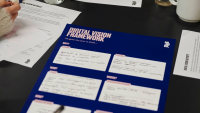
You can download the digital vision template if you'd like to use it to create your own digital vision.
Harnessing the Power of Storytelling
Tom Hashemi and Natallia Nenarokamava from Cast from Clay reminded us why storytelling is such a powerful tool. Their session demonstrated how narratives can influence policy, build trust, and connect audiences with purpose-driven missions.
They showed that policymakers are often overwhelmed by facts, and to cut through the noise you need a powerful story to make your facts drive a narrative. Whether or not you work influencing policy, the storytelling techniques they showcased are highly useful for any team looking to get its organisation's message across online.
What goes on the homepage?
Homepages are often a battleground of competing priorities. David Eccles delivered a practical workshop to address this challenge, introducing the "homepage pyramid" framework to prioritise user needs while balancing internal demands.
The takeaway? The best homepages are clear and simple. Less is more.
Looking Ahead to 2025
The afternoon panel session and unconference session looked ahead to next year, letting delegates consider what challenges and opportunities they foresee for their organisations.
During the unconference session, we asked attendees to vote on the biggest challenges they expect to face in 2025. The results showed a wide range of different potential challenges, but the most frequently cited were:
- Resourcing: Balancing ambitious goals with finite capacity and prioritising what matters most.
- AI Integration: Moving beyond the hype to ethically and effectively incorporate AI into operations, content creation, and user experiences.
- Content Strategy: Navigating the complexities of planning, creating, and managing content that is both accessible and engaging at scale.
These challenges, along with concerns about accessibility, sustainability, and digital maturity led to a series of great discussions during the unconference session that are too varied to summarise, so you'll just have to attend next year to experience it for yourself!
Practical uses of AI
AI is powerful, but so is the hype around it. Our Innovation Director, Jaron Ghani, showed some of the pitfalls of current AI technologies and demonstrated more practical applications that organisations can use without risking their reputations.
Jaron shared tools we've built in Drupal to use AI for content organisation, search optimisation, alt-text generation, and to help maintain your brand's tone of voice. He challenged attendees to think beyond the hype and focus on AI's immediate potential to simplify workflows.
Yet we also couldn't resist showing some of our more experimental AI protypes – which you can read more about in our post on AI prototypes for enhancing the GLAM visitor experience.
Lightning talks
The Great Digital for Good conference is all about digital teams learning from each other's shared challenges. A series of quick-fire lightning talks did exactly this, with digital leaders from the Joseph Rowntree Foundation, Electoral Commission and Lloyd's Register Foundation sharing their team's wins and lifting the lid on the work that went into achieving them.
Daniel Wigglesworth from the Joseph Rowntree Foundation showed how they built a culture of accessibility that led to them being named most accessible charity website in the UK and the most accessible website for housing authorities by Silktide.
Tim Crowley from the Electoral Commission showed how getting the tech stack right in advance let the Electoral Commission withstand multiple DDoS attacks on election day without any issues for users.
Finally, Sean Clemson from Lloyd's Register Foundation shared his organisation's journey to digital maturity, giving some pointers on how to up-skill teams and get buy-in from higher-ups about the need for digital investment. He left us with some great takeaways, like the fact that 'failure is an option' – you need to be able to try, fail and learn, and that 'more money can mean more problems', as you end up with too many complex systems. He recommended auditing and cutting back as many unnecessary systems as possible and pointed out that often, free tools are all you need to get the job done.
Digital Sustainability
Jaron Ghani delivered a talk to highlight the growing importance of reducing digital carbon footprints. He showed that from hosting decisions to optimising content, there are tangible ways for digital teams to align with sustainability goals. Perhaps most important of all was the revelation about how crucial the decision of where to host information is to your digital carbon footprint.
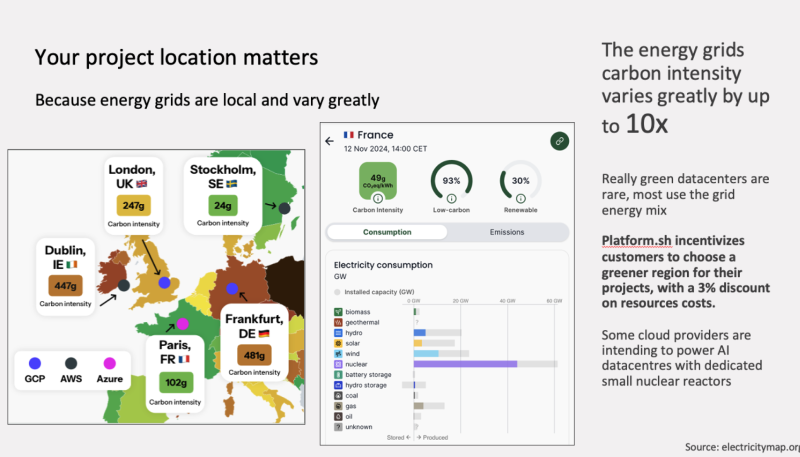
You can choose where to host your data, and some countries grids are many, many times less carbon intensive than others. A simple decision to host in France over Ireland, or Sweden over Germany could reduce your websites carbon footprint by 5x or more.
The best agencies need the best clients
Numiko's client partner, Catherine Warwick, rounded off the day with an interactive workshop to explore how organisations can maximise their relationships with agencies to achieve better results. We looked at what the barriers are to great agency-client relationships, and explored how these can be removed. It's something we're always considering, so we're going to be reading all the delegates’ worksheets with great interest to see what lessons we can glean.
The Big Takeaway: empathy
One of the most rewarding aspects of the day was the energy in the room. From cross-sector networking to animated discussions during workshops, it was clear that everyone was sharing and learning in equal measure.
When it came to wrap up, we realised there was one key theme from all the discussions, questions and talks that day: empathy. Great websites have empathy for the needs of their users, understanding them deeply and putting them first. So many of our conversations come back to this point. They also have empathy for the planet and make choices to enhance digital sustainability. Similarly, getting buy-in required empathy for stakeholders, understanding their needs and presenting information as needed. Finally, great agency-client relationships are founded on empathy that flows both ways, from agencies understanding the pressures the client faces to clients understanding how consolidating feedback or briefing effectively can be immensely helpful to the agency team working on their project.
What's Next?
Whether you're refining your homepage, developing your digital vision, or tackling sustainability, the insights from this event are designed to equip you with the tools and inspiration you need. But as we see it, the Great Digital for Good community is just getting started.
We always thought the best thing about the event would be bringing a bunch of great people together, and with that in mind we've created a Slack group to keep the conversation going. This is exclusively for those in digital roles at purpose-driven organisations. To apply, email [email protected] with your work email address and job title, and we'll invite you to the community.
